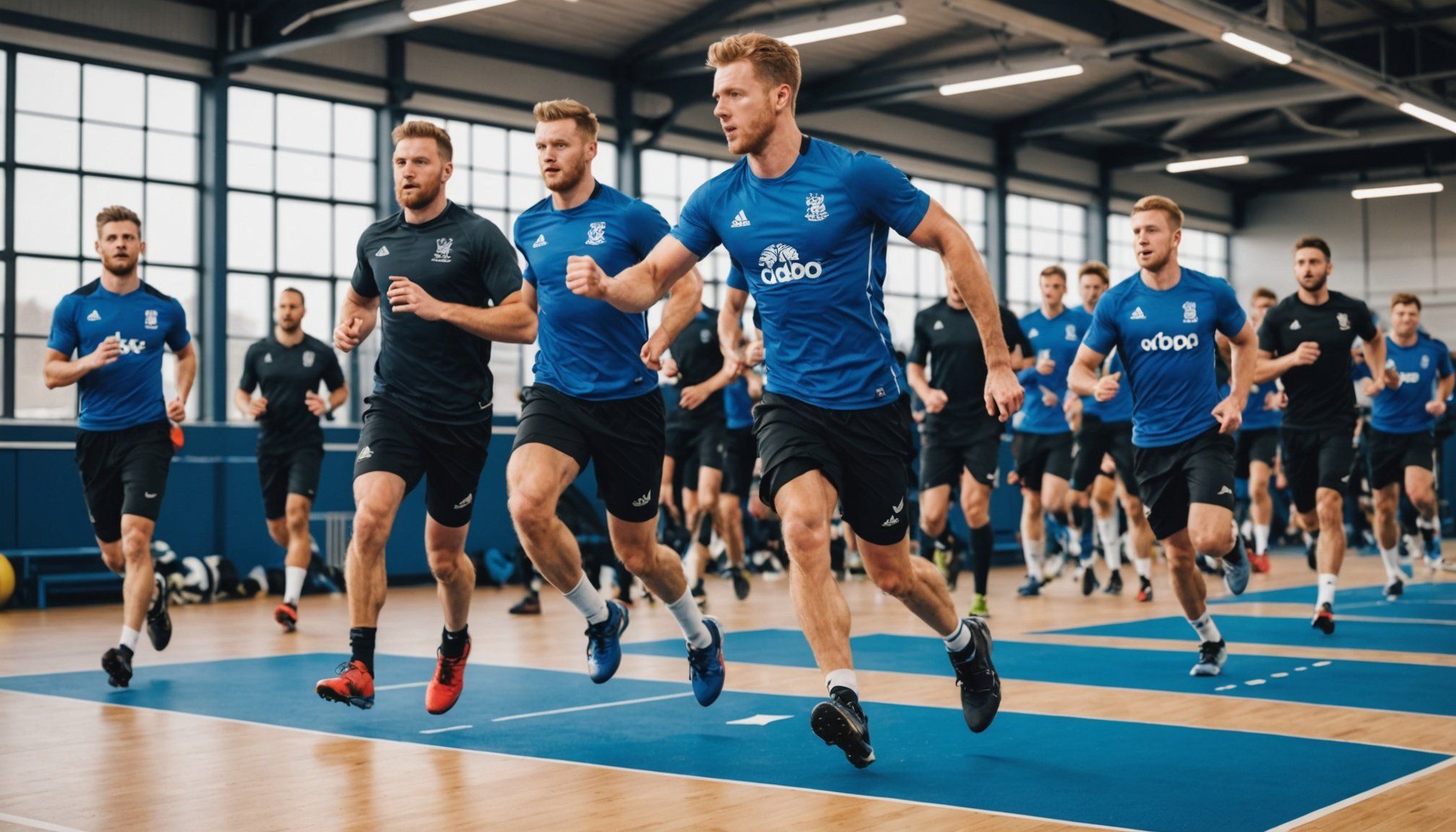Understanding Athlete Commitment
The concept of athlete commitment is pivotal for any sports club aiming for success and longevity. At its core, athlete commitment refers to the level of dedication and loyalty an athlete shows towards their club, including their participation in activities and adherence to club values. This commitment is crucial as it directly impacts retention rates, ensuring that athletes remain engaged and invested in the club’s success.
Several factors play a significant role in influencing athlete loyalty. These include the athlete’s personal goals, relationship with the coaches, and the overall sense of belonging they feel within the club. A strong community feeling fosters intrinsic motivation, which is vital for sustained engagement and commitment.
Creating a welcoming environment where athletes feel part of a cohesive unit can enhance motivation. Community and belonging are not merely supplementary aspects; they are foundational in building loyalty and commitment. These elements reassure athletes that they are valued members of their clubs, enhancing their dedication and encouraging long-term participation. Understanding these dynamics allows sports clubs to develop targeted strategies to improve athlete commitment, thus ensuring ongoing success and community growth within the club.
Creative Engagement Strategies for Athlete Retention
Developing engagement strategies is essential in fostering loyalty and sustaining athlete participation in sports clubs. By implementing creative approaches and enhancing member interaction, clubs can successfully retain their athletes and promote a vibrant, committed community.
Implementing Unique Training Programs
Designing training programs that cater to various skill levels is a key strategy in maintaining member interaction. Diverse sessions appeal to athletes of all abilities, increasing overall participation and satisfaction. Gathering athlete feedback to continuously refine these programs helps ensure they meet evolving needs, thereby enhancing engagement. By highlighting success stories, clubs can celebrate individual achievements and motivate other participants, fostering a collective drive toward improvement.
Leveraging Technology for Connection
Technology can play an instrumental role in member interaction. Utilizing apps and offering virtual training sessions keeps athletes connected, even when they’re not onsite. Social media initiatives also encourage a sense of community by allowing members to share experiences and achievements publicly, thus reinforcing the club’s identity and values.
Organizing Fun and Inclusive Events
Social events, friendly competitions, and family-inclusive gatherings are vital engagement strategies. These events bolster club camaraderie, providing athletes with opportunities to bond outside traditional training settings. Inviting families and friends to participate extends the club’s reach and reinforces the support network essential for athlete loyalty.
Building a Supportive Club Culture
A positive club culture is the bedrock for thriving community building and robust support systems within a sports club. Establishing open communication channels is crucial for this. Encouraging regular feedback mechanisms ensures that athletes’ needs and concerns are addressed promptly, allowing for tailored support.
Fostering Open Communication
Creating avenues for continuous dialogue between coaches and members can significantly enhance club trust and transparency. Regular check-ins and open forums provide athletes the opportunity to voice their thoughts. With transparent club operations, athletes are more likely to feel valued and invested.
Supporting Mental and Physical Well-being
Integrating wellness programs tailored for athletes broadens support beyond the physical aspects of sport. Access to mental health resources and creating a safe environment for discussion about personal challenges promote holistic well-being. Clubs focusing on these areas increase the attractiveness and retention of their membership.
Celebrating Achievements and Milestones
Recognition programs are essential for acknowledging both individual and team successes. Sharing athlete journeys within the community not only fosters motivation but also reinforces a sense of belonging. Celebrating a diverse array of achievements, including personal milestones, strengthens the club culture and cements commitment.
Case Studies of Successful UK Sports Clubs
Examining case studies of UK sports clubs that have excelled in member retention can reveal valuable insights into crafting successful engagement strategies. These clubs demonstrate how creative approaches and effective member interaction have led to remarkable outcomes.
Several clubs attribute their success to adopting diverse engagement strategies catering to a wide range of interests and skill levels. For instance, they offer personalised training sessions and incorporate social media platforms to create vibrant online communities. This creative approach encourages athletes to connect, share their experiences, and deepen their club affiliation.
One exemplary club implemented an interactive app that allows members to track their progress, access exclusive training content, and communicate directly with coaches. This technology-driven method fosters a sense of belonging and engagement, enabling members to feel valued and connected.
Moreover, clubs prioritising regular feedback collection and program amendments ensure that member needs are consistently addressed. This responsiveness cultivates loyalty and sustains long-term participation. Lessons from these clubs underscore the importance of fostering amicable environments, leveraging technology, and innovating continuously to enhance athlete commitment and satisfaction. These best practices position clubs for ongoing success.
Tailoring Programs to Fit Member Needs
Developing tailored programs is crucial for addressing the unique preferences and needs of each member. Conducting regular surveys helps sports clubs identify these individual interests and craft relevant solutions. This personalized approach ensures that training and engagement options align with the diverse backgrounds and skills within the club, leading to improved athlete commitment.
When clubs customize training sessions based on feedback, they foster a sense of ownership among athletes. Members feel more connected since their voices contribute to the program structures. By incorporating these insights, clubs can implement successful engagement strategies that resonate with everyone. This, in turn, boosts participation and fosters lasting loyalty.
Employing data analytics offers a precise method for tracking participation trends and satisfaction levels. It enables clubs to make informed decisions about the effectiveness of their programs. This real-time analysis is indispensable for fine-tuning offerings, ensuring they meet evolving member expectations. As a result, athletes experience increased motivation and a stronger sense of belonging within the club. Ultimately, personalizing the member experience enhances satisfaction, retention, and overall club success by making athletes feel valued and understood.











